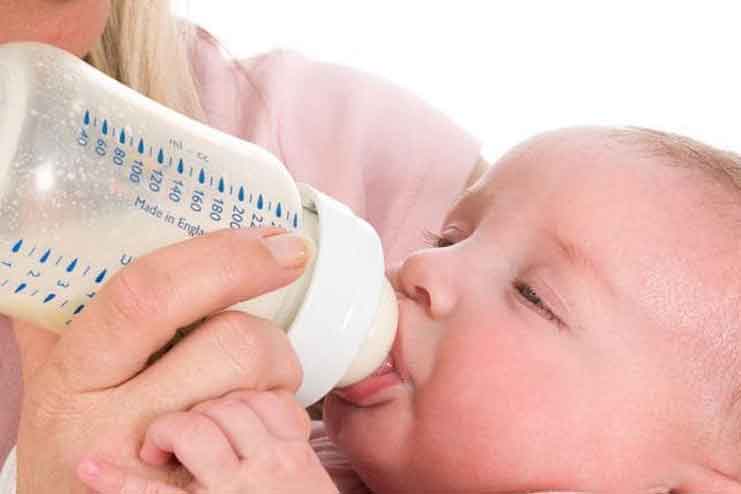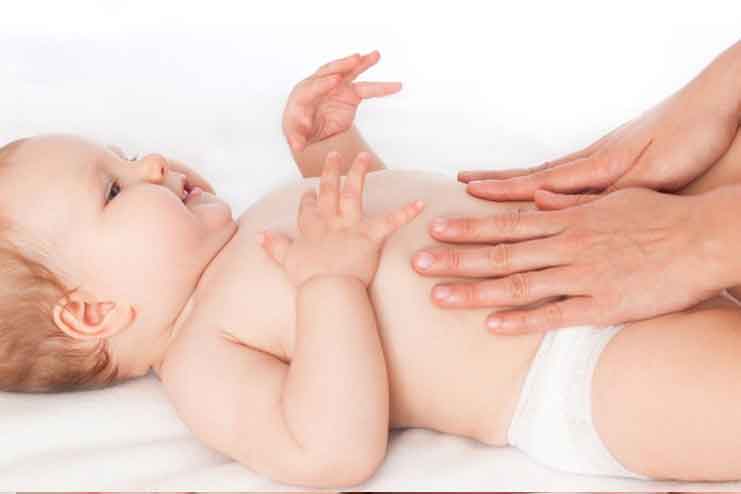Breastfed babies have many benefits over other babies. They get all the nutrients and powerful antibodies through mother’s milk. Babies will form great attachment bonding during feeding. In addition to these benefits, they are getting gas. It is very embarrassing to see your breastfed baby dealing with gas. What foods make them gassy?
Nursing mom should pay attention to the diet as she is the only source for her baby. Diet is not only the thing to look into for the gas in babies, but it may also depend on various factors.
This chapter discusses the causes of gas in babies including food and other factors. It presents tips to prevent gas in babies.
What is Gas in Babies?

In recent days, everyone irrespective of age is being affected by gas. Gas is the air that gets trapped in your baby’s stomach or intestine . This air may lead to severe pain in some babies. Gassy babies are commonly known to pass the gas 13-21 times each day. Many gassy babies may play well but some become restless and can not sleep well until they pass the gas.
Things that Make Baby Gassy:

Gas enters the digestive tract through the following ways:
Swallowing Air:
Babies who drink milk from the bottle are at a high risk of swallowing air. Shaking the bottle, pouring the milk into the bottle high above from it may create bubbles that may enter into the baby’s digestive tract when swallowed.
Breastfed babies may also swallow air when they latch onto the breast incorrectly. Sucking an air-filled pacifier may lead to gas in babies.
Excessive Crying:
There may be a chance of swallowing air when the babies cry for a longer time. If crying makes them gassy, you may hear them passing gas soon after crying. It is a very typical situation to judge whether the crying is causing the gas or gas is making them cry. Either way needs immediate attention and ways that soothe them earlier.
Digestive Problems:
- Constipation may usually lead to gas. In rare situations, gas is a sign of reflux, which is a severe gastrointestinal condition.
- Babies with an immature digestive tract may experience feeding intolerances. Its symptoms may include vomiting food, stomach bile, accumulation of air in the abdomen.
- Gastrointestinal Virus, which makes the baby experience the combination of vomiting, diarrhea, abdominal cramps, fever, and poor appetite resulting in dehydration.
Thrush:
It is a common infection in the mouth of babies. Babies get it from the affected nipples of the breastfeeding mom. This makes the baby’s mouth more uncomfortable or painful making the baby refuse to breastfeed.
Hypersensitiveness:
Sometimes formula milk or the foods in the mom’s diet may make the baby more vulnerable to gas.
New Foods:
Any food consumed by the baby other than breast-milk like vitamins, formulas, herbs may increase the gas in babies. In older infants, introducing some solid foods may make them more vulnerable to gas.
Signs and Symptoms of Gas in Babies:
The most common symptoms that the gassy babies exhibit are:
Your baby cries for an hour or so a day:
This problem is more frequent in newborn babies. Their tiny, underdeveloped digestive system makes it difficult to cope up with the smooth digestion leading to discomfort. If this problem is more frequent and your baby seems unhappy most of the time in a day, then it is a sign of severe problem beyond the newborn gassiness which needs immediate medical attention.
Trouble in eating/sleeping:
If your baby is facing difficulty in eating and sleeping, it can have a wide range of reasons. Newborn gas may be one of the reasons. Check with your pediatrician for the proper diagnosis.
Had a hard tummy:
Most babies experience hard tummies after heavy feeding. If the swollen or hard tummy is accompanied by the irregular bowel movements consult your pediatrician.
Arching the back:
Severe gas in babies may lead to abdominal pain. Arching back is the way that babies used to express their discomfort, acute or severe pain.
Lifting the legs:
Most often babies try to pass out the gas by changing the position and by pulling up the legs.
Crying occurs after passing the air or when the baby is not hungry or tired.
Foods that Cause Gas in Babies:
Breast milk is made not made from what a mother has in her stomach or digestive tract. It is made from what the mother has in blood. So, the diet that the mother takes is less likely to cause gas in babies.
If you suspect that any food that you eat is struggling you baby eliminate that food from your diet and observe the change. If you notice that your baby is vulnerable to food sensitivity eliminate that food from your diet.
- The gas that you may experience from foods like broccoli, cabbage, garlic, spicy foods, and potato may cause a local reaction in your digestive tract.
- The dairy products in your diet like milk, cheese, yogurt, pudding, ice cream, casein, etc may cause gas in your baby.
- Researchers at the Keck School of Medicine of USC found that fructose passes to the infant through breastfeeding.
Eliminating certain foods may not yield immediate results. Some suspected foods might take longer than a week to clear the problem. Do not put extreme limitations on your diet.
Here are the few healthy eating tips for breastfeeding mothers:
- Avoid or limit foods with caffeine. Caffeine foods are chocolate, coffee, tea, and soft drinks, etc.
- Don’t consume artificial sweeteners beyond the safety levels.
- Do not skip meals and have healthy meals with additional snacks thrice a day.
Foods to avoid on older infants to avoid gas:
When your baby reaches the age of 6-7 months, you may start introducing him to the different types of solid foods. You should be very careful while planning the best diet that suits their immature digestive system. Some foods break down slowly and some may produce gas after several hours of their breakdown. The reason behind this is, whenever the indigestible material present in these foods enters the large intestine, it may be consumed by the bacteria which in turn releases gas.
Here are the few foods that may likely to cause gas in your older infant:
- Beans
- Dried legumes
- Cabbage
- Broccoli
- Asparagus
- Corn
- Whole grains
- Onion
- Cauliflower
- Dried fruits
Some kids often experience gas after eating dairy products like cheese, tomatoes, apples, peaches, and pears.
Remember to consult your pediatrician before introducing any solid foods to your baby.
Tips to minimize the problem. While trying to introduce the foods that cause gas:
Here are the few ways to minimize the side effects caused by the gassy foods in your older infants:
- While trying to feed your infant dried legumes and lentils. Soak them for a few hours or overnight before cooking. Change the soaking water several times before you cook. This makes much of the indigestible sugars dissolve in water thereby helps in preventing the gas.
- While planning to feed your baby broccoli, cook florets alone avoid stems. Stems are known to produce more gas than florets.
- Add sliced ginger to the boiling water while cooking the foods that are well known to cause gas. You can also add ginger to the finished dish which acts as the best digestive aid.
- Avoid canned beans and try to cook the beans yourself. Try using different types of self-cooked beans like black beans that do not harm your baby.
- Make sure to include natural yogurt in your baby’s diet which helps in balancing the healthy bacteria.
Tips to Prevent Gas in Babies:

Here are the few tips that help your baby to deal with the gas:
1. Apply gentle pressure to your baby’s belly:
Wait for 30 minutes after feeding your baby this makes your baby settle down before applying gentle pressure.
Here are the two positions to help your baby to flush out the gas trapped in the stomach. You can also make your baby lie on the tummy while playing
A. Tummy Time:
Gently apply pressure on your baby’s belly and help to get rid of trapped gas in the stomach. You can gently massage the tummy instead of applying gentle pressure. Massage gently below the ribcage.
B. Forearm Hold:
Hold your in hand facing down in such a way that the body should rest on your forearm, front of the diaper area should be in your hand and the chin should be cradled in the elbow. Tilting the baby’s head side to side in this position will help in avoiding any nose or mouth blockage.
C. Bicycle your baby’s legs:
Bicycling your baby’s legs will help in moving out the trapped gas by moving the intestine. With your baby lying on her back take legs in your hand and gently cycle them slowly back and forth. Try pressing their knees gently against their tummy. Do not do it continuously, give the baby time to relax.
2. Check the feeding positions:
Try to set the baby’s head position a little higher than the tummy. This will help in sinking the milk to the bottom of the stomach and air goes to the top which can be easily sent out by burping. Make sure to avoid any bubbles in the nipple by holding the bottle slightly up.
3. Gripe Water:
You can use the gripe water recommended by your pediatrician for the babies above one month. It is recommended for the babies below one month as their digestive tracks are sensitive.
4. Help your baby to latch on properly:
Improper latching may make your baby swallow more air and make it trapped in the intestine making them refuse further feeding.
5. Try shorter and more frequent feedings:
Baby’s tummy is around the size of her fist. Try feeding her more often for a shorter period. This helps in making their digestive system work effectively.
6. Burp Your baby:
Burp your baby soon after giving feeding. Place your baby over the shoulders and gently pat or rub on the baby’s back to expel the trapped air.
7. Try Using Different Bottles:
Some formula-fed babies drink very quickly which makes them swallow more air. Try using the bottle with a slow flow nipple.
8. Use Drops:
Use the drops like simethicone, which is not absorbed by the body. It helps the gas bubbles trapped in the stomach and intestine to come out more easily. Make sure to consult your pediatrician before giving it to your baby.
9. Make them cry, Less:
As babies are known to swallow the air while crying, try to use distraction techniques to make them cry less. Play with them by making funny faces and funny sounds, showing a toy, etc will help you to make your kid stop crying.
10. Massage with mustard oil:
Massage your baby’s tummy in a circular motion with warm mustard oil will help in expelling the air. Then give the baby a warm water bath which helps in triggering their drowsiness and keeping them fresh and active.
11. Use Betel Leaf:
Dip the betel leaf in castor oil and place it over your baby’s stomach will help in relieving the stomach pain.
12. Give them time to adjust:
The most effective treatment to avoid gas in babies is TIME. Babies need some time to get their immature digestive systems mature. Until then the babies are more likely to pass the gas.
When to See a Doctor For Gas in Babies:
Infant gas is a normal problem and treatable. But in some cases, it may be the sign of a serious digestive problem.
Reach your doctor if you notice the following signs in your baby:
- Your baby has bloody stools or vomits.
- You can’t make your baby calm down
- Your child’s rectal temperature exceeding 100.4 F.
You must be aware of the discomforting signs that babies will display and soothing techniques. Gas is a common problem in infants, so learn a few tips to get rid of gas in babies.










































